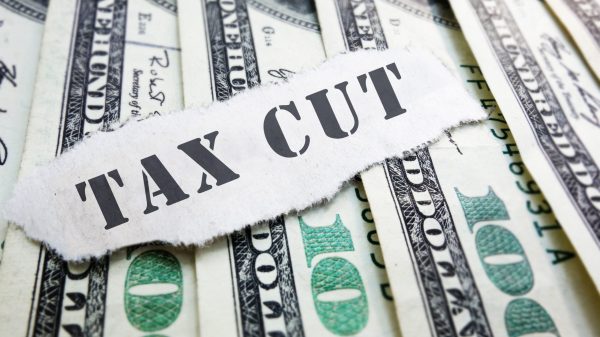|
Getting your Trinity Audio player ready...
|
In the lead-up to the election, mailers from the National Right to Work Committee have begun landing in Alabamians’ mailboxes, accusing Democratic Congressional candidate Shomari Figures of “[planning] to continue kowtowing to Big Labor at the expense of his constituents.”
“Now, when he’s seeking your vote, is the time to demand Mr. Figures change his ways, publicly apologize, and pledge to oppose compulsory unionism,” one letter reads.
The mailers also portray Figures’ purported support for the Protecting the Right to Organize Act (or PRO Act) as a red flag for voters. First introduced in 2019, the legislation would override state right-to-work laws, protect workers trying to form a union, and provide more legal rights to independent contractors.
Alabama has been a so-called “right-to-work state” since 1953. In 2016, a referendum enshrining the “right to work” in the Alabama state constitution passed with 69.6 percent support.
Despite the name, a right-to-work law has nothing to do with an actual positive right-to-work, like a job guarantee might provide.
According to the NRTWC, a right-to-work law instead “guarantees that no person can be compelled, as a condition of employment, to join or pay dues or ‘fees’ to a labor union.” Since the passage of the Taft-Hartley Act in 1947, 27 states have passed right-to-work laws, with Michigan becoming the first state to repeal a right-to-work law in 2023.
For decades, labor union advocates have pointed out that right-to-work laws effectively allow workers to receive all the benefits of union membership without actually helping to cover the union’s expenses. “How can you expect the union to discharge its contractual obligation for all the workers if the individual worker can walk out on his obligation?”, UAW and CIO president Walter Reuther asked during a 1953 hearing.
And Martin Luther King Jr. once called a right-to-work law “a law to rob us of our civil rights and job rights. Its purpose is to destroy labor unions and the freedom of collective bargaining by which unions have improved wages and working conditions of everyone.”
In recent years, several studies have apparently confirmed King’s claims, finding right-to-work laws reduce unionization rates and consequently wages — although some researchers have arrived at more mixed results.
Dev Wakeley, Alabama Arise’s worker policy advocate, told APR he believes “Alabama’s ‘right to work’ law prevents employers from freely agreeing with the workers in their business to have a unionized workforce.”
“Voluntary recognition through the card check process empowers working people,” Wakeley continued. “That is exactly why the powerful corporate interests that have kept control of Alabama, and the rest of the South, through almost the entirety of our nation’s history have been working to punish forward-thinking companies that want to move beyond the plantation economy past and instead toward modern, more cooperative attitudes to workers.”
While Figures has not publicly expressed support for the PRO Act, his campaign website promises that he will “support and protect the right to advocate as a collective when workers choose to organize.” Democratic presidential candidate Kamala Harris has repeatedly promised to “sign the PRO Act into law” if she’s elected and the bill makes it to her desk.
But despite the lack of any public commitment by Figures to vote for the PRO Act, the NRTWC’s mailers tell recipients that “the AFL-CIO has been supporting [Figures] for months now” and claim that supporting the PRO Act is a prerequisite for AFL-CIO help.
The AFL-CIO Committee on Political Education has in fact donated to Figures’ campaign, but he does not appear to be endorsed by the organization. However, Figures’ website does tout endorsements from several unions, including the Teamsters and the American Federation of State, County and Municipal Employees (AFSCME).
In contrast to their coverage of Figures, the NRTWC mailers laud Republican candidate Caroleene Dobson’s “position in total opposition to forced unionism.” Dobson responded yes to all nine of the NRTWC’s candidate survey questions, which included committing to opposing card check unionization, preventing the “forced unionization of [government] employees,” and supporting the repeal of existing pro-union legislation.
The National Right to Work Committee did not respond to APR’s requests for comment. The Figures campaign did not provide a statement before this article was published.























































